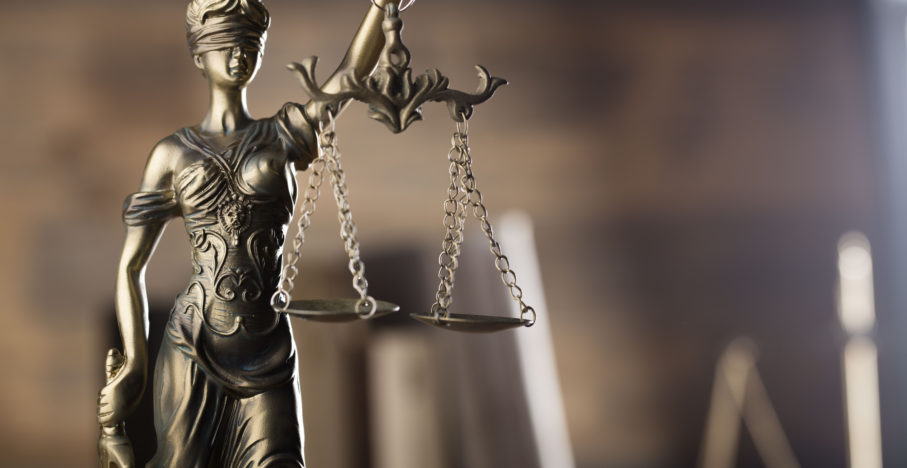New Title IX Regulations Emphasize Due Process for Accused Students & Faculty

What Is a Title IX Violation and How Must a School Respond?
The Rules permit a Title IX complaint to be filed alleging sexual misconduct that occurs in educational programs or activities, such as in college-owned buildings, on college-sponsored trips, and at college affiliated fraternity houses, but not in off-campus apartments or during study abroad. In addition to prohibiting sexual assault, dating and domestic violence, and stalking, the Rules define sexual harassment as “unwelcome conduct determined by a reasonable person to be so severe, pervasive, and objectively offensive that it effectively denies a person equal access to the school’s educational program or activity.” If the alleged conduct fails to meet that definition, the school must dismiss the Title IX complaint.
Anyone may report a Title IX allegation to the school’s Title IX Coordinator. When they do, the school must give both the complainant and the accused written notice of the allegations, the “conduct allegedly constituting the sexual harassment,” and the right to an advisor including an attorney .
The school must also allow both parties to submit and review evidence throughout both its initial investigation and the Title IX hearing that follows. There is no “gag order” on seeking out supporting witnesses or other evidence.
Schools must send a copy of the evidence to the parties at two different stages of the case – at least ten days before the investigation report is completed, and then again at least ten days before the hearing. The parties must receive a draft of the investigation report and can submit a written response to the draft report. The Rules state that the investigator “will consider” that response before completing the investigation report. Following completion, the final report is delivered to the parties for review and each may submit another written response.
The school must apply a presumption that the respondent is not guilty of the charged offense. Any decision-maker at a hearing must not be the same person who conducted the investigation or the school’s Title IX Coordinator. No more “single investigator” proceedings. Schools must also publish their Title IX training materials on their website.
Conduct of a Title IX Hearing
Colleges and universities must conduct a fair and impartial hearing of the charges unless the parties and the school agree to mediate, a right available to students but not employees or faculty members.
A critical right under the Rules is allowing each party to cross-examine the other party and supporting witnesses through their attorney or advisor. A Title IX defense attorney is an expert on cross-examination and will be of great importance in helping you defend your case.
The school must adopt a standard of evidence for conviction that is the same as used for formal complaints against its employees, either a “preponderance of the evidence” or a higher standard such as clear and convincing evidence. Many employees and faculty are represented by unions who have negotiated a higher standard for liability in their collective bargaining agreements. A Title IX lawyer is an expert on determining the standard of evidence and defending your case to its requirements.
The Rules require that hearings be conducted by trained Title IX personnel who can objectively evaluate all relevant evidence without prejudgment and free from conflicts of interest or bias for or against either party. A Title IX attorney can evaluate the proposed hearing officers and identify whether they have shown bias or have a conflict of interest to ensure that you get fair hearing officers to decide your case. At the end of the hearing, the hearing officers must make written findings of fact and explain their conclusions.
Appeals
The Rules also address requirements for campus appeals of an adverse ruling. Both parties must be given an opportunity to appeal. Minimum standards for an appeal include procedural irregularity, new evidence not reasonably available at the time of the hearing, or a conflict of interest or bias on the part of the decision-makers, investigators or Title IX Coordinator.
If an appeal is unsuccessful, a Title IX lawyer will have preserved the record to best position you for a Title IX lawsuit in a federal court. Violations by the school of the new Rules will be among the grounds to set aside an adverse finding.
We Can Help
If you believe your due process rights have been violated, let’s talk.
Our attorneys are Title IX defense specialists and we have helped hundreds of accused students and faculty across the country who have been treated unfairly by their schools. Call us at 212-736-4500 or contact us as soon as a complaint is filed and we will be there aggressively protecting your rights, ensuring a fundamentally fair process, or establishing the deficiencies that will lead a court to reverse the school’s adverse findings. There is no fee for a private
consultation.
At Nesenoff & Miltenberg, LLP, personal attention is a priority. All calls are returned within 24 hours and our clients work directly with their experienced attorneys.
Since every school’s procedures are different and each individual situation is unique, this blog does not constitute legal advice.




